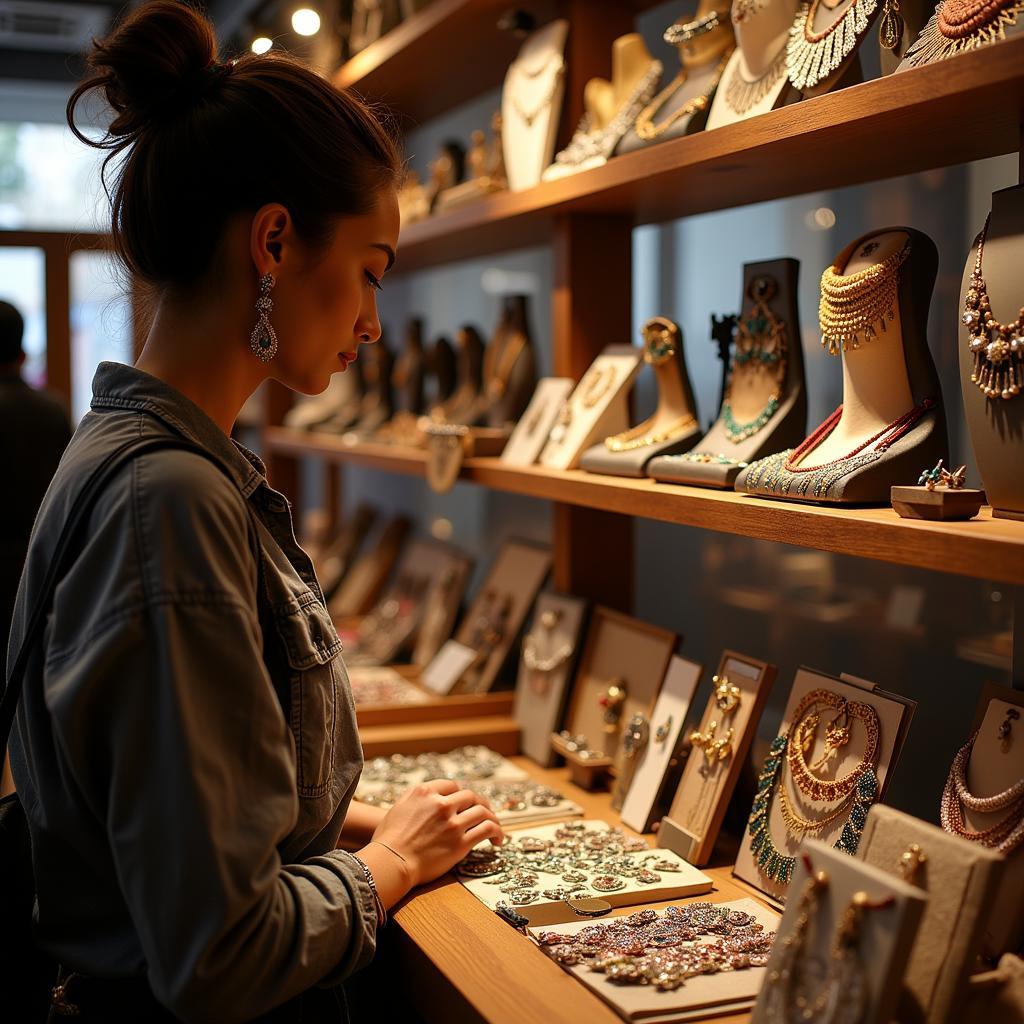African Dress Styles for Graduation: Celebrating Heritage & Achievement
Graduating is a momentous occasion, a time to celebrate years of hard work and dedication. For many across the African continent, it’s also an opportunity to showcase their cultural heritage through stunning attire. African Dress Styles For Graduation go beyond the traditional cap and gown, offering a vibrant tapestry of colors, patterns, and silhouettes that reflect the continent’s rich diversity and craftsmanship.
Embracing Tradition: A Fusion of Culture and Style
From the flowing robes of North Africa to the intricate beadwork of Southern Africa, each region boasts unique graduation attire that tells a story.
North Africa: Elegance and Grace
In North Africa, graduation attire often draws inspiration from Islamic traditions, featuring elegant garments like the “djellaba” or “kaftan.” These long, loose-fitting robes, often made from luxurious fabrics like silk or brocade, exude sophistication and grace.
 Moroccan graduate in a flowing kaftan
Moroccan graduate in a flowing kaftan
West Africa: Bold Prints and Vibrant Colors
West Africa explodes with a kaleidoscope of colors and patterns, and graduation attire is no exception. The iconic “kente” cloth, handwoven in Ghana and Togo, is a popular choice, its intricate geometric patterns symbolizing wisdom, knowledge, and cultural pride. “Adire” fabric, another West African favorite, features bold, indigo-dyed patterns, often hand-painted by skilled artisans.
 Nigerian graduate in a vibrant adire dress
Nigerian graduate in a vibrant adire dress
East Africa: Flowing Fabrics and Beaded Accessories
East African graduation styles often incorporate flowing fabrics like “kitenge” or “leso,” known for their vibrant colors and bold prints. These fabrics can be draped and styled in various ways, from long, flowing dresses to more tailored silhouettes. Beaded jewelry, often handmade by local artisans, adds a touch of elegance and cultural significance.
Southern Africa: Intricate Beadwork and Symbolic Adornments
Southern Africa is renowned for its intricate beadwork, and graduation attire often incorporates this vibrant art form. Beaded necklaces, bracelets, and headbands, each color and pattern carrying symbolic meaning, add a touch of cultural heritage and personal style. The “Shweshwe” fabric, a printed cotton fabric featuring geometric patterns, is another popular choice, its indigo hues symbolizing strength and resilience.
 South African graduate in a Shweshwe dress and beaded accessories
South African graduate in a Shweshwe dress and beaded accessories
Choosing the Perfect African Graduation Attire: Tips and Inspiration
Navigating the diverse world of African dress styles for graduation can feel overwhelming. Here are some tips to help you choose the perfect outfit:
- Consider your personal style. Do you prefer classic and elegant or bold and contemporary?
- Research different fabrics and patterns. Each region offers unique textiles and designs, each with its own story to tell.
- Think about the occasion. A formal graduation ceremony might call for a more traditional and elaborate outfit, while a casual celebration might allow for a more modern and relaxed approach.
- Don’t be afraid to accessorize. Beaded jewelry, headwraps, and other accessories can add a personal touch and enhance your overall look.
- Consult with a tailor or designer. A skilled artisan can help you create a custom outfit that perfectly reflects your personal style and cultural heritage.
“Graduating in traditional attire allows young Africans to connect with their roots and celebrate their accomplishments in a meaningful way,” says Abena Serwaa, a Ghanaian fashion designer specializing in contemporary African graduation wear. “It’s about embracing heritage while stepping confidently into the future.”
Frequently Asked Questions about African Dress Styles for Graduation
1. Can I wear African attire even if I’m not African?
Absolutely! Wearing traditional attire from another culture is a beautiful way to show appreciation and respect. However, it’s essential to do so with sensitivity and avoid cultural appropriation. Research the meaning behind the garments and wear them with respect and understanding.
2. Where can I find authentic African fabrics and designers?
Many online retailers specialize in African fabrics and clothing. You can also find local artisans and designers in your city or town.
3. Can I incorporate modern elements into a traditional African outfit?
Absolutely! Many designers are fusing traditional African aesthetics with contemporary silhouettes and trends, creating unique and stylish graduation outfits.
4. What are some popular hairstyles to complement African graduation attire?
Braids, twists, and natural hairstyles are all beautiful options that complement African attire. You can also add accessories like headwraps or beaded hairpins.
5. Are there specific colors or patterns that are appropriate for graduation?
While there are no strict rules, some colors and patterns hold symbolic meaning in different cultures. It’s always a good idea to research the significance behind specific designs before making your choice.
Celebrate Your Heritage and Achievements with Style
Choosing African dress styles for graduation is about more than just fashion—it’s about embracing heritage, celebrating achievements, and stepping into the future with pride. From the intricate beadwork of Southern Africa to the bold prints of West Africa, each garment tells a story of creativity, resilience, and cultural richness. So, as you embark on this new chapter, let your attire reflect the vibrant tapestry of your heritage and the bright future that lies ahead.
For any support or guidance on choosing the perfect African attire for your special occasion, please don’t hesitate to contact us. Call: +255768904061, Email: kaka.mag@gmail.com or visit us at Mbarali DC Mawindi, Kangaga, Tanzania. Our dedicated team is available 24/7 to assist you.



